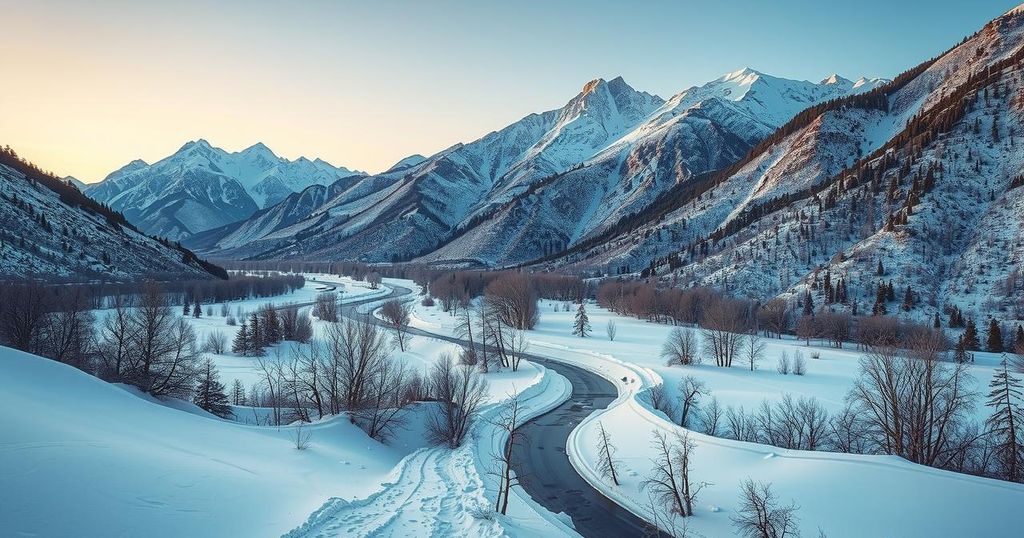Impact of Climate Change on Winter Days in the Mountain West
Climate change is significantly reducing winter days in the Mountain West, with some areas losing up to ten days per year. The Southwest states are particularly affected, while higher elevation regions like Wyoming experience lesser reductions. This trend has implications for ski resorts, ecosystems, and water supplies.
Recent findings indicate that residents in the Mountain West are experiencing a significant reduction in winter days, with this year projected to bring a decrease of between two and ten days. According to a report issued by Climate Central, rising temperatures are diminishing the number of days characterized by below-freezing conditions, a stark consequence of climate change.
Specifically, states in the Southwest, including Arizona, New Mexico, and Nevada, have recorded an average loss of approximately ten days each winter, primarily due to their naturally warmer climates. Kristina Dahl, Vice President of Science at Climate Central, noted, “And so a little bit of warming can have a much bigger impact on things like whether precipitation falls as rain or snow.”
Areas at higher elevations, such as Utah, Colorado, Montana, and Wyoming, display a lesser reduction in winter days. For instance, Wyoming has lost an average of only two below-freezing days. Despite this lesser impact, Dahl remarked, “It’s not like places like Wyoming aren’t warming as well. It’s just that they’re still below that threshold.”
Idaho and Colorado have witnessed losses of four winter days on average. This ongoing trend poses substantial risks to local ski resorts that may need to adjust their operating seasons and disrupt regional ecosystems. “If it is warm in the winter and flowers bloom early,” Dahl continued, “the pollinators may not be there yet to pollinate those flowers and sustain crops.”
Additionally, reduced snowfall during winter presents a threat to water supplies, compounding the challenges faced by the region.
In conclusion, the findings from the Climate Central report underscore the significant impact of climate change on the winter landscape of the Mountain West. With notable reductions in winter days, the effects extend beyond just recreational activities, influencing broader ecological systems and the future availability of essential resources.
The article addresses the challenges posed by climate change, particularly in the context of winter conditions in the Mountain West. It highlights the alarming trend of reduced winter days due to rising temperatures, as documented by Climate Central. The implications extend beyond recreational activities, affecting ecosystems, agriculture, and water resources, making it a significant concern for residents and policymakers in the region.
The reduction of winter days in the Mountain West poses serious consequences for local economies reliant on winter sports, as well as for ecosystems dependent on predictable seasonal patterns. With states like Arizona, New Mexico, and Nevada experiencing the greatest losses, it is evident that urgent attention to climate change is necessary to mitigate these effects. Ensuring the sustainability of both human activities and natural systems will be crucial in addressing these challenges moving forward.
Original Source: www.kanw.com




Post Comment